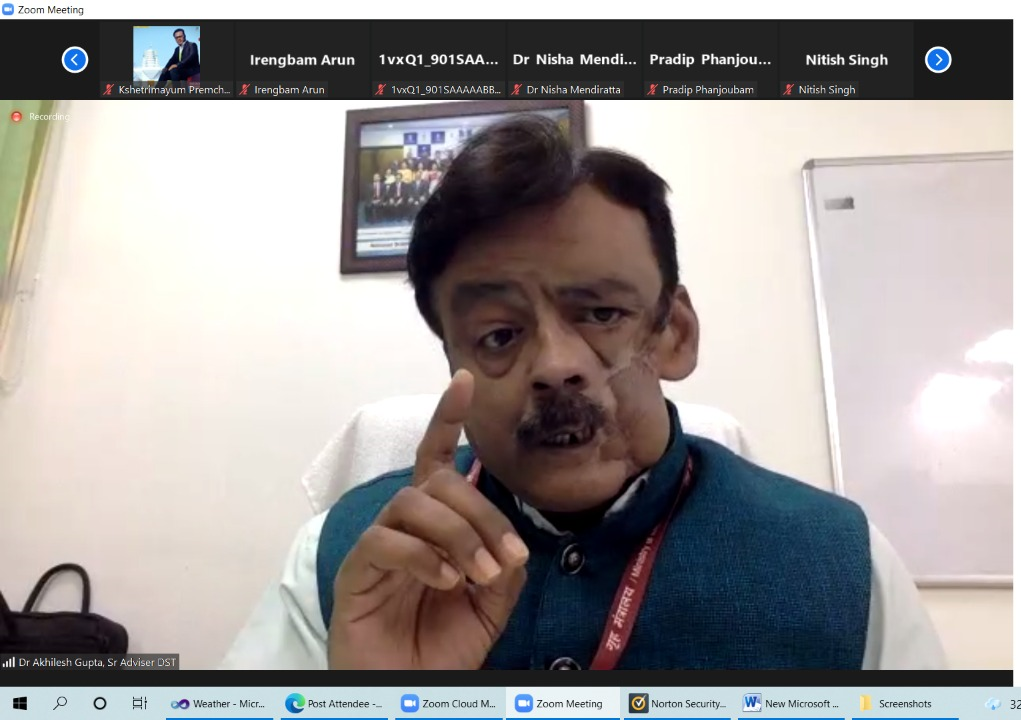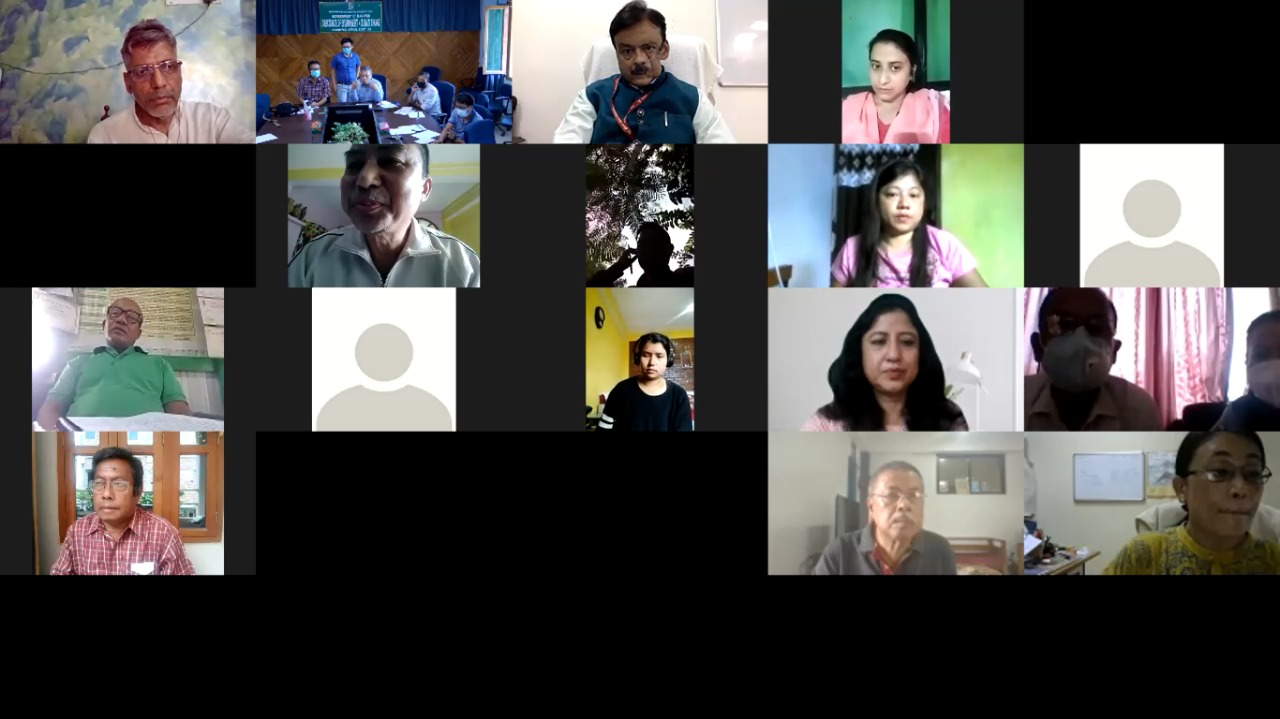Several young journalists from Manipur were exposed to the impacts of climate change in different parts of India and the steps taken by India to tackle the problem at an interaction with experts.

“Developed countries are the root cause for the climate change problem, and India, which is the worst affected, has supported several programmes to tackle the problem. The Department of Science and Technology (DST) started the climate change programme in 2009-2010, and we have come a long way supporting more than 200 programmes in the area,” said Dr Akhilesh Gupta, Senior Advisor and Head, Policy Coordinator & Programme Management (PCPM) Division, DST at an online interaction with young State Level Media Fellows on Climate Change Reporting organised by Manipur State Climate Change Cell, Directorate of Environment and Climate Change, Government of Manipur.
Dr Gupta referred to the recent IPCC report on climate change which talked about the grave consequences of climate change. He cautioned that if corrective steps are not taken, all warnings will come true in the next two decades. Citing the major takeaway from the report, he informed that temperature is going to increase by 1.5 degrees centigrade. This, he said, would lead to an increase in heatwave, erratic monsoons, problems of drought and floods. He added that the Indian Ocean will witness the sea-level rise, and the rate of increase of sea level has already enhanced in the last two decades. He also pointed out that there will be an increase in number of cyclones. Besides, an increase in carbon dioxide in the ocean and increased temperature will cause myriad problems.
He underlined that journalists can play a crucial role in the public understanding of climate change which is critical to combat the problem. They can play a very important role in highlighting it at the local level because the global challenge has local impacts and hence requires action at the local level. Public understanding can enhance the sensitivity of government officials at the local level, and this can also trigger both research, adaptation and mitigation action at the local level. He emphasized that the media fellowships by the State CC Cell Manipur can encourage journalists to go in-depth in covering their stories and hence bring about change.

“Climate change is impacting all the states and entire ecosystem. There are impacts on humans and animals. Various human health issues are caused by climate change. It is a battle that state governments and the central government need to fight collectively. We have done a district-wise and sub-district wise vulnerability assessment for all the States and UTs in the Himalayan region and district-wise assessments for the rest of the country. All the nine districts of Manipur have been found to be vulnerable. Given such warnings, future planning should be done with a synergy between development and climate, and media has a huge role to play to bring about such change in mindset. Trained media fellows could help orient this direction,” Dr Gupta pointed out.
Dr Nisha Mendiratta, Head, Climate Change Division of DST, also participated in the interactive programme with Media Fellows.






























